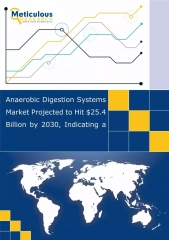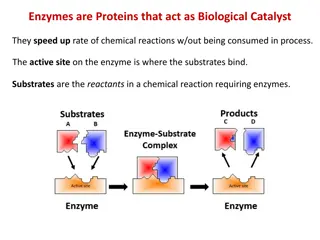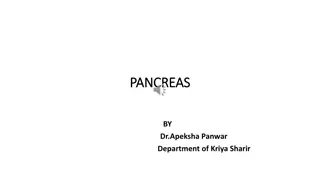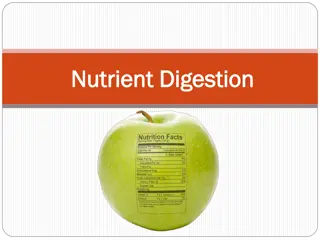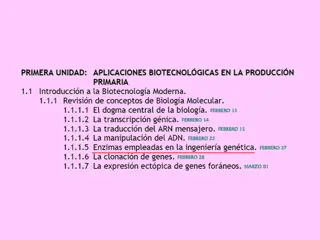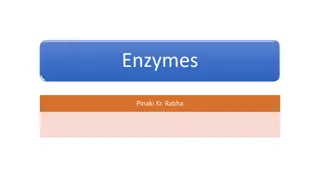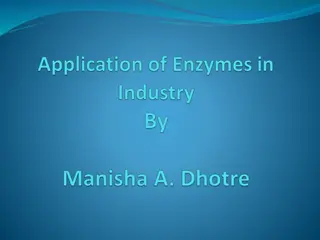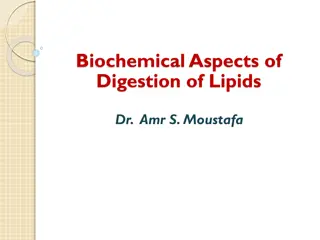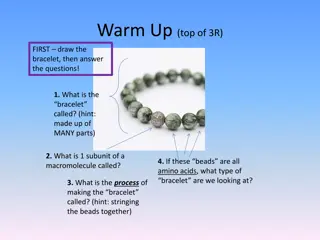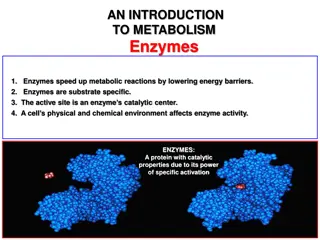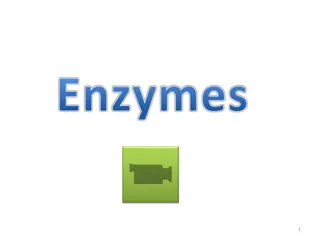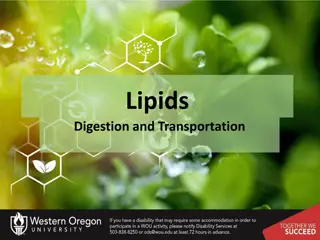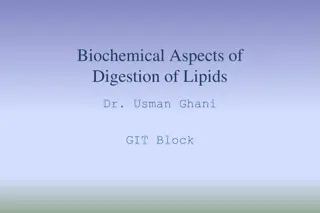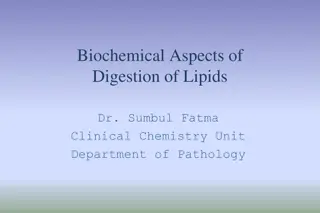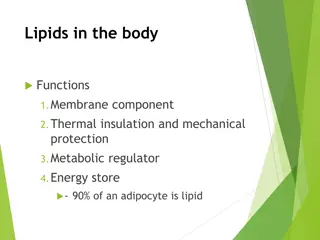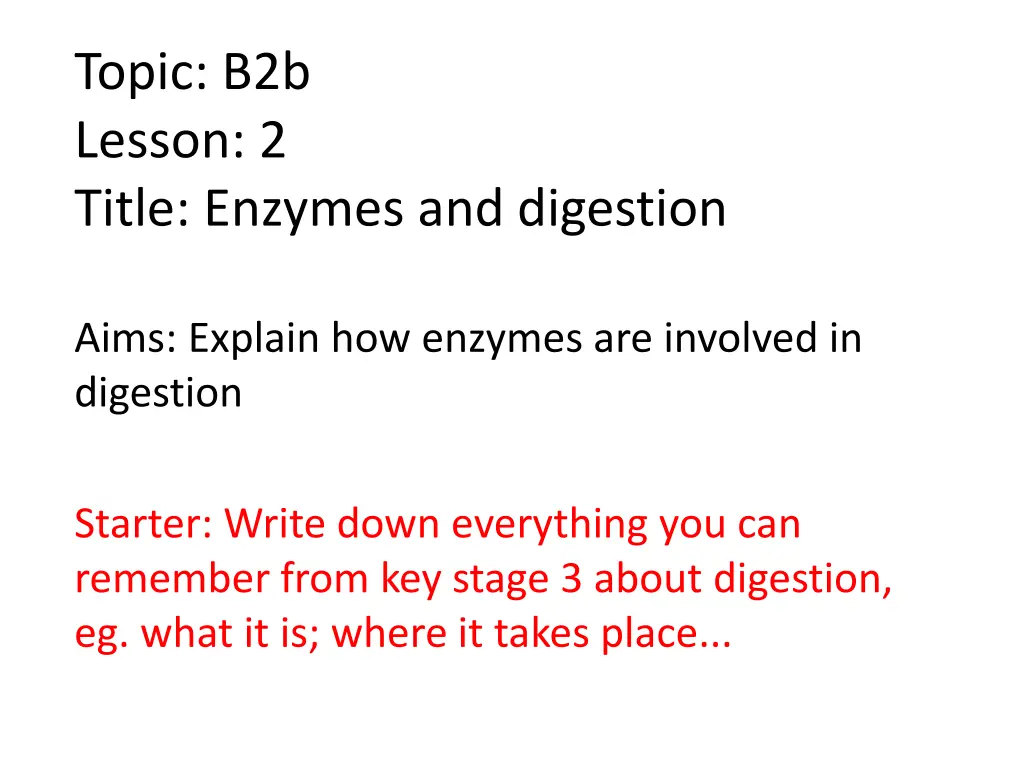
Enzymes and Digestion in the Body
Explore how enzymes play a crucial role in breaking down large molecules into smaller, absorbable components during the process of digestion. Learn about the specific enzymes involved in digesting carbohydrates, proteins, and lipids. Assess your understanding through a mini-test on digestive enzymes and delve into the significance of stomach acid, bile, and the adaptations of villi in the small intestine for efficient food absorption.
Download Presentation

Please find below an Image/Link to download the presentation.
The content on the website is provided AS IS for your information and personal use only. It may not be sold, licensed, or shared on other websites without obtaining consent from the author. If you encounter any issues during the download, it is possible that the publisher has removed the file from their server.
You are allowed to download the files provided on this website for personal or commercial use, subject to the condition that they are used lawfully. All files are the property of their respective owners.
The content on the website is provided AS IS for your information and personal use only. It may not be sold, licensed, or shared on other websites without obtaining consent from the author.
E N D
Presentation Transcript
Topic: B2b Lesson: 2 Title: Enzymes and digestion Aims: Explain how enzymes are involved in digestion Starter: Write down everything you can remember from key stage 3 about digestion, eg. what it is; where it takes place...
What is digestion? Breaking down large, insoluble molecules into smaller, soluble molecules that can be absorbed through the wall of the small intestine What breaks down the large molecules? Digestive enzymes made by specialised cells inside glands
The enzymes involved... Carbohydrates Simple sugars Proteins Amino acids Lipids (fats) Fatty acids + glycerol
Digestion animation (First 5 mins 15 secs) Listen carefully and make notes in your book. You will be quizzed after the animation so listen!
Mini test on digestive enzymes... 1. Where are the following digested: a) Carbohydrates mouth and small intestine b) Proteins stomach and small intestine c) Fats small intestine 2. What are the following broken down into by digestive enzymes? a) Carbohydrates simple sugars b) Proteins amino acids c) Fats fatty acids + glycerol 3. Where are most enzymes produced? Pancreas
Why do you think there is acid in the stomach? Kills bacteria in food protects us Denatures proteins makes digestion easier Activates stomach enzymes these only work in acidic conditions Ever wondered why PEPSIN (stomach enzyme) doesn t digest our own stomach? Pepsin is inactive when first made and is only activated by HCL to start digesting proteins.
What does bile do? Bile is produced in the liver and stored in the gall bladder. The enzymes in the small intestine need an alkaline pH to work best, so bile passes into the small intestine and neutralises acid from the stomach. Bile also emulsifies fat droplets to increase their surface area
How are villi in the small intestine adapted to absorb food?
How are villi specialised to carry out their job of absorbing digested foods?
Answers Millions provide large surface area Each villus has many microvilli to further increase surface area Rich blood supply for absorbed nutrients to pass into and be taken around body Branch of lymphatic system takes absorbed fatty acids and glycerol away to be used or stored Villi wall one cell thick for rapid passing through of nutrients
Digestive system summary Salivary glands produce ________ Liver produces ______ Stomach produces ________ + ________ Gall bladder stores ________ Pancreas and small intestine both produce ________, ________, and ________
Why do people have their stomachs stapled? stomach band
This powerpoint was kindly donated to www.worldofteaching.com http://www.worldofteaching.com is home to over a thousand powerpoints submitted by teachers. This is a completely free site and requires no registration. Please visit and I hope it will help in your teaching.

